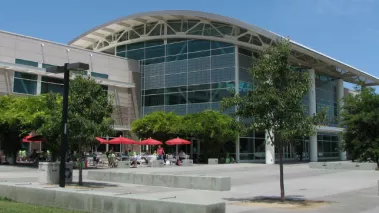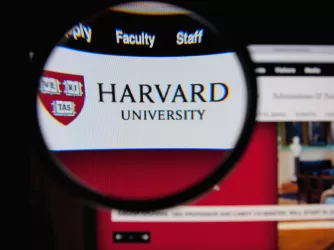Table of Contents
Free Speech, UC Davis, and the Anti-Defamation League

Peter Schmidt of The Chronicle of Higher Education reports today on an email that was sent to University of California, Davis (UC Davis) Chancellor Linda P.B. Katehi by Seth Brysk of the Anti-Defamation League (ADL), which Katehi’s office forwarded to campus administrators. The email, the full text of which is publicly available on the Electronic Intifada website, is prompting discussion about how campuses should handle controversial issues like the Israeli-Palestinian conflict. While it’s not clear whether Katehi was meaning to endorse ADL’s perspective as written in the email or simply informing administrators about ADL’s views, it’s worth looking at a few of the ideas and suggestions in the email and how they interact with the reality of free expression (or the lack thereof) on UC Davis’s campus.
Much of the beginning of the email consists of ADL’s opinion on the state of tolerance for pro-Israel and pro-Jewish speech on campus, as well as its opposition to the Boycott, Divestment, and Sanctions Movement, which calls for “a campaign of boycotts, divestment and sanctions (BDS) against Israel until it complies with international law and Palestinian rights.” ADL also states its support for free speech, saying, “The Anti-Defamation League is a strong advocate of free speech and we do not seek to censor or stifle opinions in the university community.” The email then goes on to offer several bullet-pointed “policies and practices” it suggests implementing “in the coming academic year.”
Many of these suggestions are unobjectionable, such as: “Reach out to individual students and organizations who may have been negatively affected by an incident,” and “Provide educational opportunities on campus that foster an environment of inclusion, acceptance and respect.” However, a few contain areas for concern.
The first of these is the suggestion that UC Davis “[r]eview student codes of conduct to ensure that activity which is detrimental to the free exchange of ideas is not allowed on campus.” Were it possible to trust UC Davis’s judgment when it comes to First Amendment issues, this would be sound advice. Unfortunately, that’s not the case. Indeed, UC Davis’s student code is itself detrimental to the free exchange of ideas on campus.
FIRE rates UC Davis as a “yellow light” institution for free speech, which means that it has policies that are too easily abused to restrict expression on campus—and these policies deal with precisely the kind of speech arguments that the Israeli-Palestinian issue is likely to produce. UC Davis’s “Principles of Community” state, in pertinent part:
The successful conduct of the university’s affairs requires that every member of the university community acknowledge and practice the following basic principles: … We affirm the inherent dignity in all of us, and we strive to maintain a climate of justice marked by respect for each other. We acknowledge that our society carries within it historical and deep-rooted misunderstandings and biases, and therefore we will endeavor to foster mutual understanding among the many parts of our whole. … We confront and reject all manifestations of discrimination, including those based on race, ethnicity, gender, age, disability, sexual orientation, religious or political beliefs, status within or outside the university, or any of the other differences among people which have been excuses for misunderstanding, dissension or hatred. We recognize and cherish the richness contributed to our lives by our diversity. We take pride in our various achievements, and we celebrate our differences. [Emphasis added.]
This policy is only a “yellow light” because it’s not clear whether students can be punished for failing to fulfill these “requirements.” However, it does purport to require UC Davis students to pledge fealty to a number of debatable and politically controversial beliefs, for example, “that our society carries within it historical and deep-rooted misunderstandings and biases” and that students “recognize and cherish the richness contributed to our lives by our diversity … and we celebrate our differences.” Are UC Davis students really required to “celebrate” their differences? What if they would rather celebrate similarities, or do not feel that diversity adds much to their own lives? UC Davis administrators may take the position that failing to agree with these principles is harmful to the exchange of ideas on campus, but the First Amendment leaves them no room to enforce this belief. As the Supreme Court determined in the seminal free speech case of West Virginia State Board of Education v. Barnette (1943), “If there is any fixed star in our constitutional constellation, it is that no official, high or petty, can prescribe what shall be orthodox in politics, nationalism, religion, or other matters of opinion or force citizens to confess by word or act their faith therein.”
UC Davis also participates in the University of California’s system-wide bias incident reporting system, which asks students to report their peers who they believe aren’t meeting the UC Davis requirements listed above: “If you experience or observe behavior that is inconsistent with our Principles of Community, please report it.” Students can even turn each other in anonymously. Of course, this mechanism provides a very low-cost way to chill speech that a student finds subjectively unpleasant. Think your roommate, your classmate, or your opponent in the student government election fails to adequately “cherish” diversity? Fill out an anonymous report and watch the UC system’s bias incident investigation apparatus grind into action. This is not a recipe for unfettered free speech, to put it mildly.
Returning to the ADL letter, a related point urges Chancellor Katehi to “[s]end a senior university official to potentially hostile events and prior to the start of the event have him or her remind those in attendance of university codes of conduct regarding free speech and civil discourse.” While senior officials are of course free to attend any campus event, requiring students hosting “potentially hostile events” (whatever that means) to allow those officials to offer prefatory remarks about campus policies risks chilling speech at the event—especially given UC Davis’s broad demands on students to adhere to the “Principles of Community.”
Equally concerning is the mention of policies regarding “civil discourse.” University of California, Berkeley Chancellor Nicholas Dirks recently came under much criticism, including from FIRE, for comments marking the 50th anniversary of the university’s famed Free Speech Movement that seemed more focused on a perceived need for civility than on freedom of speech itself. The uproar—including criticism from those involved in the 1964 movement!—impelled Dirks to release a much-improved statement on free speech a week later. While civility can be a valuable quality to aspire to achieve, ensuring that freedom of speech is protected on campus even when that speech is not civil is far more important. Indeed, as the Free Speech Movement veterans pointed out in their statement, “It is precisely the right to speech on subjects that are divisive, controversial and capable of arousing strong feelings that we fought for in 1964.” Or, as the Supreme Court put it in Terminiello v. Chicago (1949):
Accordingly, a function of free speech under our system of government is to invite dispute. It may indeed best serve its high purpose when it induces a condition of unrest, creates dissatisfaction with conditions as they are, or even stirs people to anger. Speech is often provocative and challenging. It may strike at prejudices and preconceptions and have profound unsettling effects as it presses for acceptance of an idea. That is why freedom of speech, though not absolute, is nevertheless protected against censorship or punishment, unless shown likely to produce a clear and present danger of a serious substantive evil that rises far above public inconvenience, annoyance, or unrest. There is no room under our Constitution for a more restrictive view. [Internal citations omitted.]
Finally, the ADL email contains what FIRE is finding to be an increasingly common misconception about the law—that Title IX provides an all-purpose ban on students feeling uncomfortable on campus. Title IX is a law banning sex discrimination on campuses that receive federal funding. It reads, in pertinent part, “No person in the United States shall, on the basis of sex, be excluded from participation in, be denied the benefits of, or be subjected to discrimination under any education program or activity receiving Federal financial assistance.” The rest of the law itself consists of many exceptions to this general rule (including, most prominently, exceptions for fraternities and sororities) as well as instructions on administration and interpretation. It has since been expanded through court decisions and regulation to cover discrimination based on actual or perceived sexual orientation and gender identity. Harassment based on these categories is covered under Title IX because it is considered to be a form of gender-based discrimination.
However, Title IX does not cover discrimination or harassment based on race, ethnicity, or religion. Title VI of the Civil Rights Act of 1964 deals with discrimination based on race, color, or national origin, and other civil rights laws prohibit discrimination based on religion, age, and disability in the educational context. In many cases, analyses of discrimination under these laws will be similar to what would be carried out under the aegis of Title IX. But universities seem to have gotten the idea that nearly all of their responsibilities regarding discrimination and harassment stem from Title IX, and, further, that Title IX permits investigating and prohibiting speech protected by the First Amendment. (It does not.) Unfortunately, ADL seems to have fallen into this mode of thinking as well.
ADL is, of course, free to encourage colleges to take whatever steps it wishes when it comes to dealing with fallout from the Israeli-Palestinian conflict on campuses. We hope that Chancellor Katehi will take this opportunity to re-focus on her constitutional responsibilities as a public university chancellor and work to eliminate UC Davis’s unconstitutional speech codes.
Recent Articles
FIRE’s award-winning Newsdesk covers the free speech news you need to stay informed.

‘I hate freedom of opinion’ meme leads to sentencing in German court

Revoking Harvard’s tax-exempt status will threaten all nonprofits

Grandpa’s advice for the new wave of American censors
